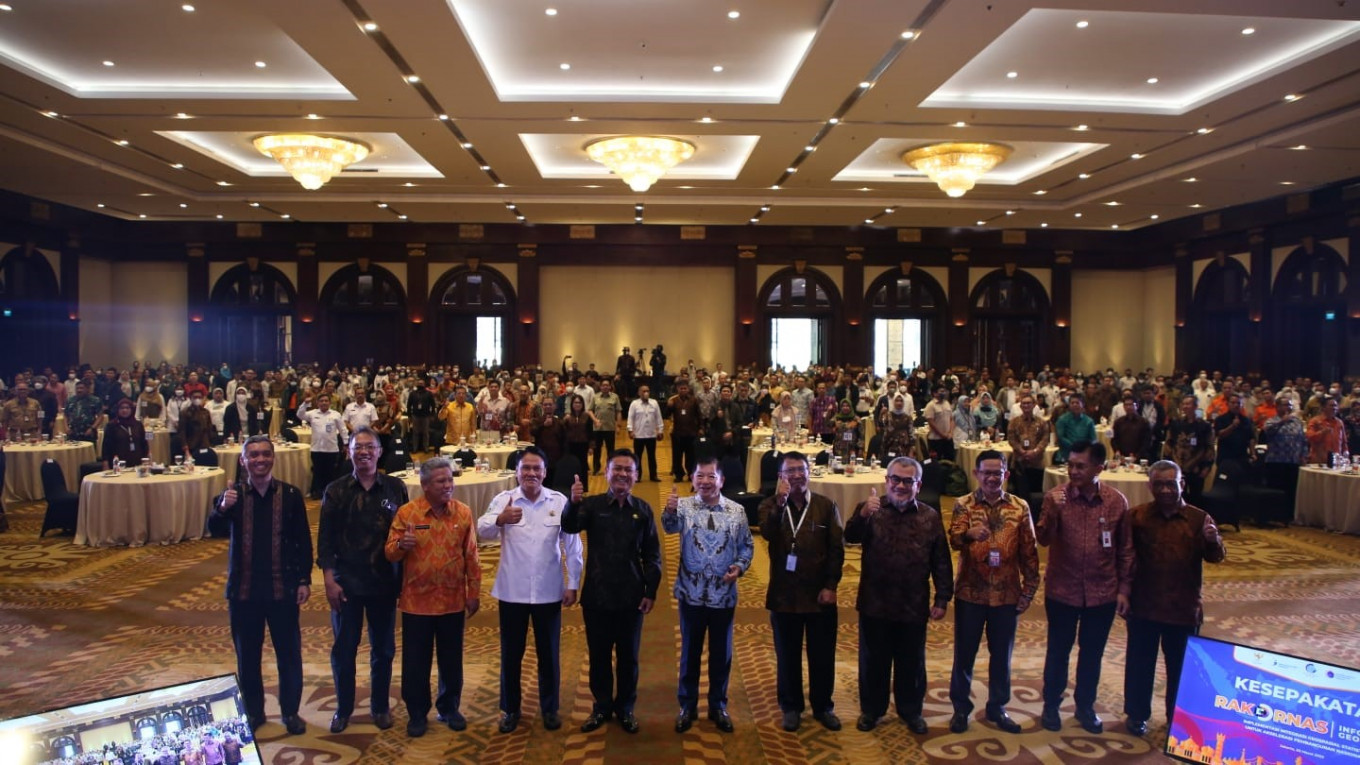Popular Reads
Top Results
Can't find what you're looking for?
View all search resultsPopular Reads
Top Results
Can't find what you're looking for?
View all search resultsGI meeting stresses importance of geospatial statistics for development
Change text size
Gift Premium Articles
to Anyone
G
eospatial information (GI) has become an integral part of national planning, alongside thematic, holistic and integrative development.
Aris Marfai, who heads the Geospatial Information Agency (BIG), stated in his opening statement at the 2023 GI National Coordination Meeting (Rakornas) held in Jakarta on 20 March 2023: “We can already sense the utilization of GI in the decision-making development framework in the fields of investments, law enforcement and the nation’s natural resource management.”
The 2023 GI Rakornas was themed “Implementation and integration of geospatial statistics to accelerate national development”, which was selected to support the Global Statistical Geospatial Framework (GSGF) established by the United Nations Statistics Divison (UNSD).
The theme also reaffirms the BIG’s commitment to sustainable development and fulfilling the Sustainable Development Goals (SDGs) by 2030.
“The integration of geospatial statistics can be utilized as a tool to monitor the indicators of the SDGs, such as poverty alleviation, climate change and even [public health programs] at any level, from the family [and] even to the national level”, in line with the principle of leaving no one behind, added Aris.
Data integration was the solution to national development, he said, which was becoming increasingly more complex and diverse, so the availability of accessible, up-to-date and quality GI was essential.
Aris expressed his hope that having this meeting would boost synergy among ministries, institutions and regional administrations linked to the One Map Policy (KSP), the Indonesia One Data (SDI) policy and the Electronic Government System (SPBE).
Antonius Bambang Wijanarto, the BIG’s Thematic Geospatial Information (IGT) deputy, shared Aris’s views and stressed the importance of maintaining IGT as well as strengthening institutions and human resources.
“Data is plentiful, it's everywhere and effort is needed to access it. With the presence of a fast national dynamic, we must remember that data is an asset,” he elaborated.
“There needs to be proper governance for spatial data as well as nonspatial data so that we can use the data for multiple purposes, including the SDGs and our national [vision] of Golden Indonesia 2045.”
The BIG holds its national coordination meeting each year. Aside from evaluating the progress of previous action plans, this year’s meeting also formulated new GI policies for 2023-2024 as a guideline for preparing work plans to implement geospatial information at ministries, state institutions and regional administrations.
The national GI policy formulated during the Rakornas will be submitted during the 2023 National Development Planning Meeting (Musrenbangnas), where it is expected to be formalized as the basis for implementing GI at ministries, state institutions and regional administrations and as a primary reference for formulating the 2025-2045 National Long-Term Development Plan.










